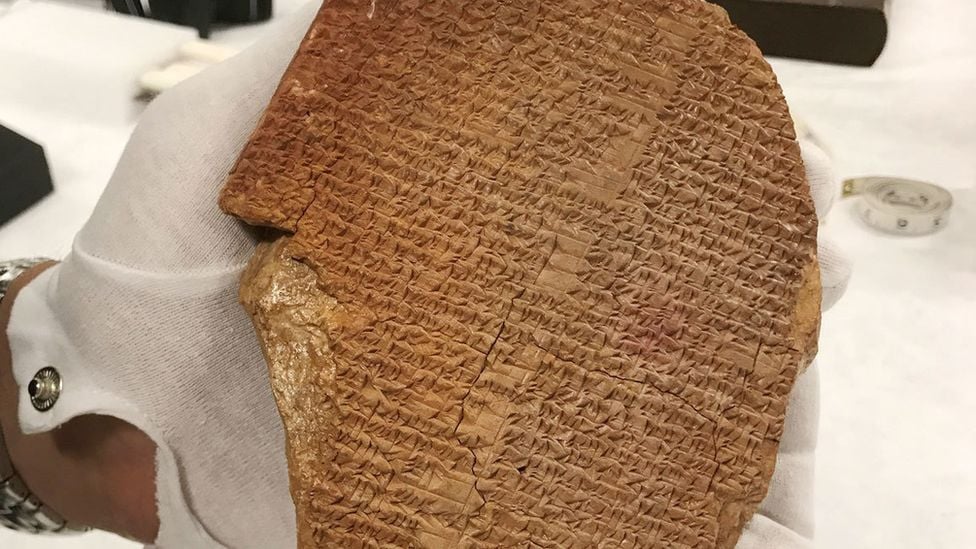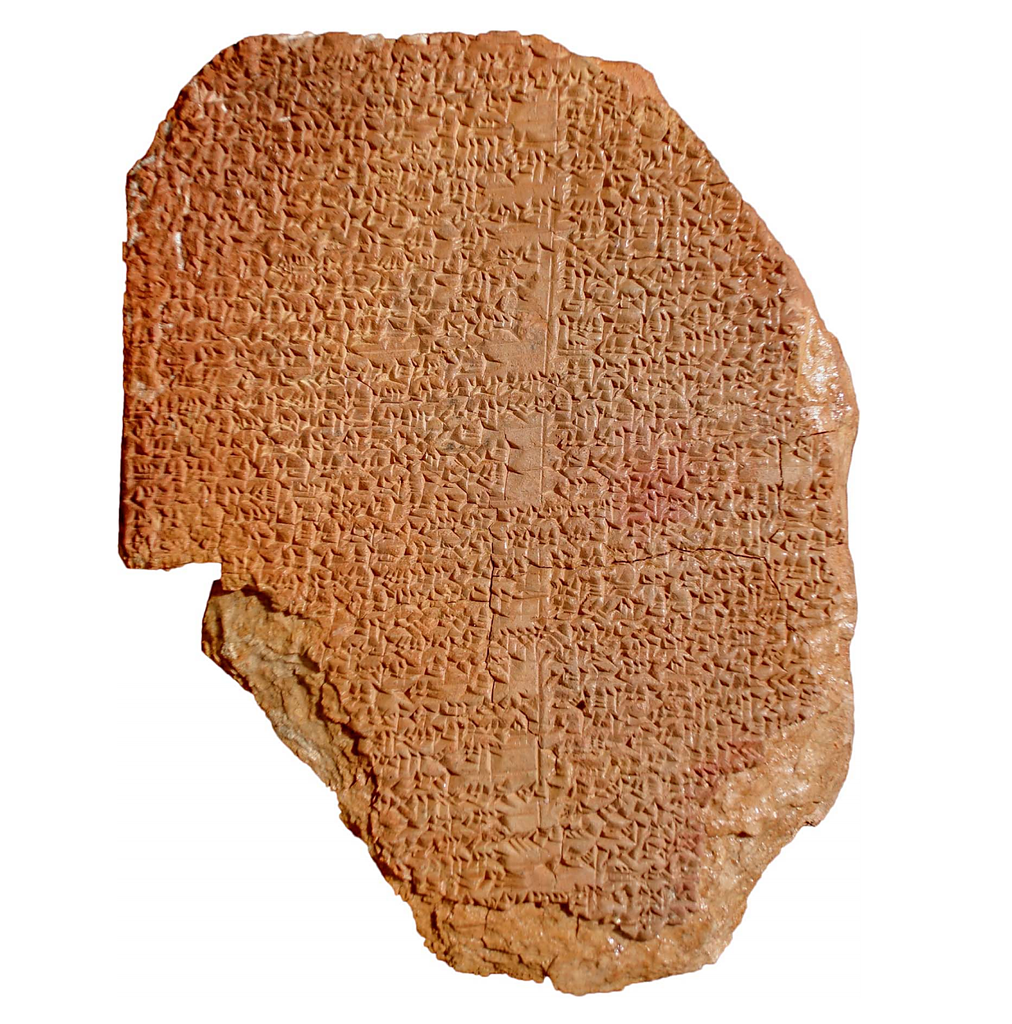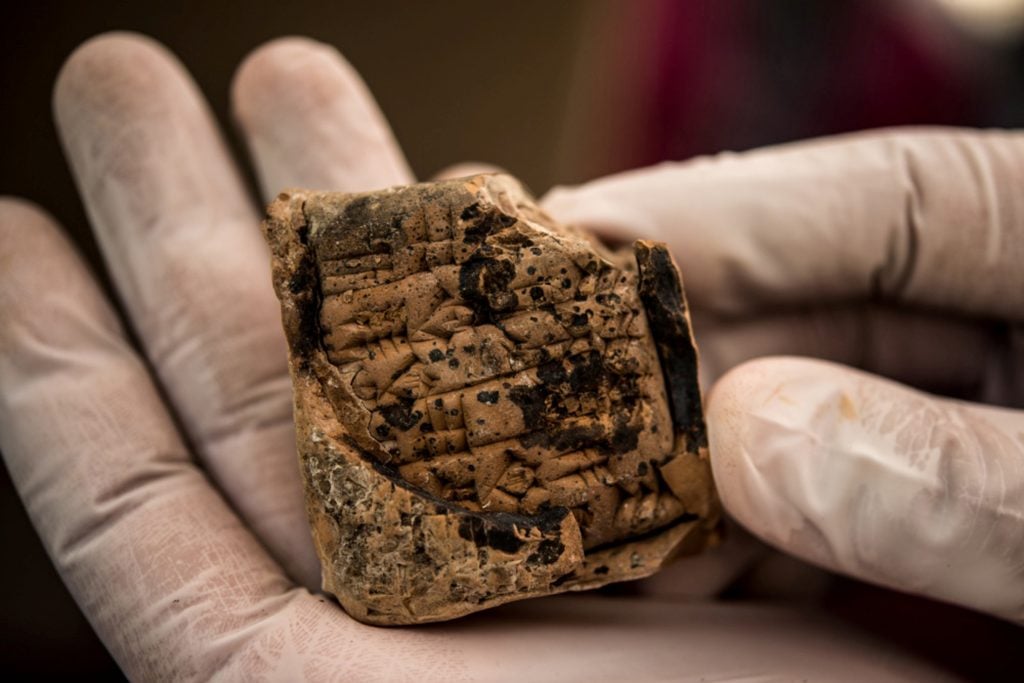Crime
Once Smuggled Out of Iraq, the Gilgamesh Dream Tablet Has Been Seized by U.S. Authorities and Will Be Returned
The U.S. is restituting 17,000 looted antiquities to Iraq, including the tablet, which was once owned by collector Steve Green.

The U.S. is restituting 17,000 looted antiquities to Iraq, including the tablet, which was once owned by collector Steve Green.

Sarah Cascone

A U.S. District Court in New York has ordered the craft chain Hobby Lobby to forfeit the Gilgamesh Dream Tablet, a rare cuneiform text from ancient Mesopotamia that was smuggled into the country from Iraq, so that it may be returned.
The company’s founder, Steve Green, bought the 3,500-year-old Akkadian artifact in 2014. The purchase was intended for the then-forthcoming Museum of the Bible, in Washington, D.C. But the collection the Evangelical billionaire amassed turned out to be chock full of looted antiquities, the Gilgamesh Dream tablet chief among them.
“This forfeiture represents an important milestone on the path to returning this rare and ancient masterpiece of world literature to its country of origin,” acting U.S. Attorney Jacquelyn M. Kasulis for the Eastern District of New York said in a statement. “This office is committed to combating the black-market sale of cultural property and the smuggling of looted artifacts.”
The Gilgamesh Dream Tablet is so named because it contains a segment from the Epic of Gilgamesh, believed to be one the world’s oldest religious texts, in which the poem’s titular hero recounts his dreams to his mother. The poem was of interest to the Museum of the Bible because it also speaks of a great flood, similar to the story of Noah’s ark in Genesis, the first book of the Old Testament.

The cuneiform tablet known as the Gilgamesh Dream Tablet, which was seized by the U.S. government. Courtesy the U.S. District Court for the Eastern District of New York.
The artifact is one of approximately 17,000 looted artifacts that the U.S. has agreed to repatriate to Iraq, a “result of months of efforts by the Iraqi authorities in conjunction with their embassy in Washington,” Iraqi Culture Minister Hassan Nazim said in a press conference today, reports Agence France Presse. “This is the largest return of antiquities to Iraq.”
The bulk of the objects will fly with Iraqi Prime Minister Mustafa al-Kadhimi when he leaves Washington, D.C., on Thursday, following a visit with President Joe Biden earlier this week. It is not clear if the Gilgamesh Dream Tablet will be among them, or returned separately.
Christie’s auction house brokered the $1.67 million private sale of the artifact to Green. The seller was an art dealer who offered as provenance a letter stating the work had been purchased at San Francisco’s Butterfield & Butterfield auction house in 1981, included in a box of ancient bronze fragments that had been deaccessioned by a small museum.

One of the thousands of looted ancient artifacts that Hobby Lobby returned to the Republic of Iraq. Photo courtesy of U.S. Immigration and Customs Enforcement.
In fact, the works were sold in London by Jordanian antiquities dealer Ghassan Rihani for just over $50,000 in 2003. An unidentified dealer smuggled the objects to the U.S., and concocted the phony provenance, falsifying the auction records. (The Gilgamesh Dream Tablet changed hands several times before making it way to Hobby Lobby.)
Importing the tablet was a violation of the Emergency Protection for Iraqi Cultural Antiquities Act, enacted by the U.S. in 2004 to stem the flow of looted Iraqi antiquities. Cultural objects removed from Iraq after the start of the Gulf War in August 1990 are prohibited from entering the county. (Last year, the Iraqi Ministry of Culture announced that it was investigating the artifact’s origins, and that it might have stolen from a regional museum followed the U.S. invasion in 1991.)
The U.S. government seized the Gilgamesh Dream Tablet in September 2019, with the Department of Justice calling it “stolen Iraqi property” in a legal complaint.
Hobby Lobby has already been forced to restitute over 11,000 artifacts—mostly papyrus fragments, cuneiform tablets, and clay seals—to Egypt and Iraq. The company, which was forced to pay a $3 million fine, has filed lawsuits against Christie’s for the sale of the Gilgamesh Dream Tablet and an Oxford University classics professor alleged to have sold the company ancient Bible fragments that were stolen.